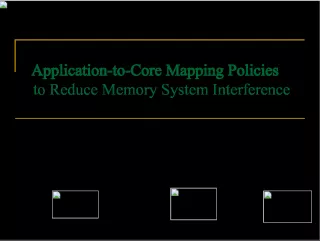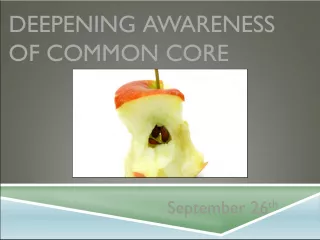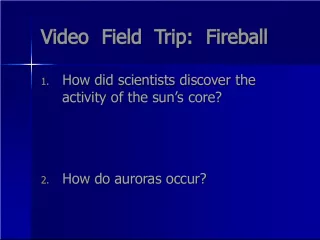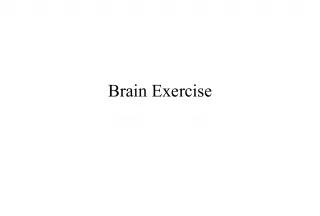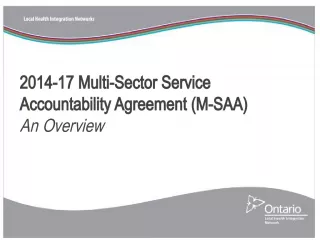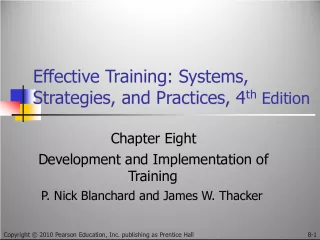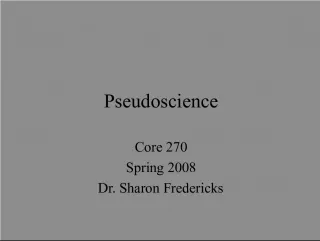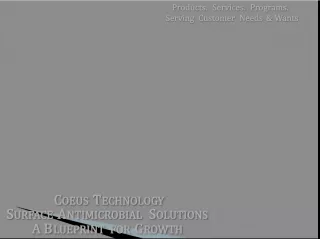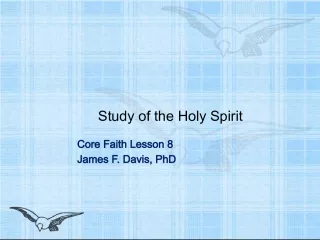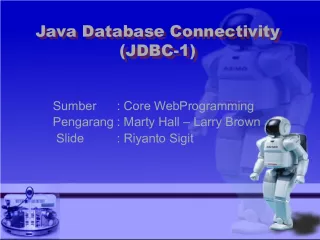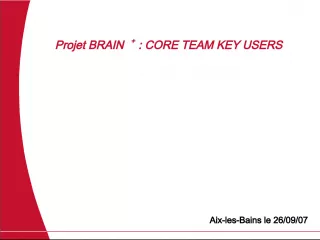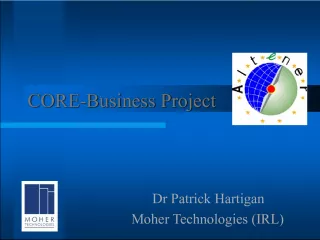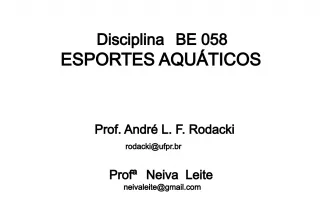Core Training: Understanding Core Function and Effective Exercises
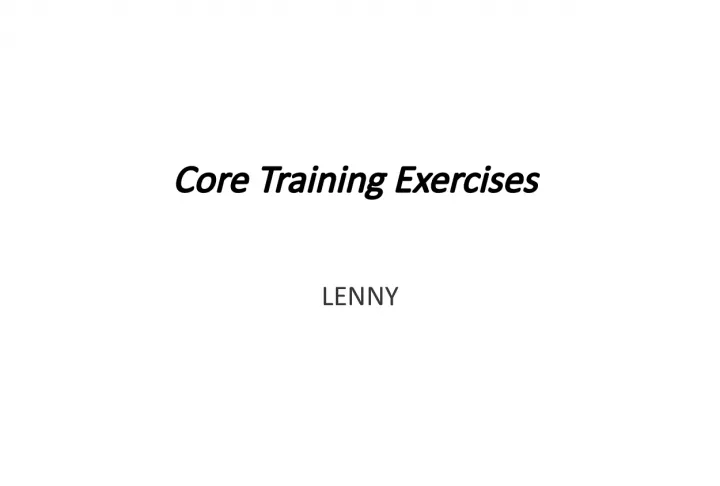

Discover the importance of core stabilization and movement, and how to effectively train your core using exercises like bridges and planks.
- Uploaded on | 1 Views
-
 roma
roma
About Core Training: Understanding Core Function and Effective Exercises
PowerPoint presentation about 'Core Training: Understanding Core Function and Effective Exercises'. This presentation describes the topic on Discover the importance of core stabilization and movement, and how to effectively train your core using exercises like bridges and planks.. The key topics included in this slideshow are core training, core function, stabilization, spinal health, transverse abdominus,. Download this presentation absolutely free.
Presentation Transcript
1. Core Training Exercises LENNY
2. Core Function and the Roll-Out The two main functions of the core are: 1. The stabilization of the spine via abdominal compression 2. Movement spinal flexion, extension, rotation, tilting the pelvis
3. Spinal Stabilization Physiologists often use the analogy of the human spine being like the mast of a sailing ship.
4. The core muscles Transverse abdominus, Rectus abdominus, External and Internal obliques, Multifidus, Quadratus lumborum, Iliopsoas, and the Erector spinae all work together as a group to support your spine from your pelvis to your rib cage. While they all work as a team, the Transverse abdominus is the key player. While there is great debate about the best way to train the Transverse Abdominis (T.A.), there is a general consensus that any movement where you are forced to tighten you core against the demands of gravity or an outside source WILL be effective to develop the T.A. One of the most popular T.A. dominant exercises is the bridge or plank.
5. Core/Spinal Movement
6. Spinal Flexion is controlled mainly by the Rectus abdominus and the Iliopsoas. The most popular Spinal Flexion exercises are the crunch and reverse crunch. The R oll-Out produces the same movement as the crunch with the added benefit of spinal stabilization. The Stability Ball Pike/Knee-In gives you the same benefits as the reverse crunch with the added stabilization. Spinal Extension is controlled mainly by the Erector spinae and the Multifidus muscles. Spinal extension training is generally addressed by posterior chain movements like deadlifts, good mornings and bodyweight hip extension movements. As such, this section of the core will be omitted from this post. Lateral Flexion is controlled mainly by the External and Internal obliques. Lateral flexion is usually trained by some form of side bends. Rotation is controlled mainly by the Obliques, Multifidus and the Erector spinae. Spinal rotation exercises have been the flavor of the month for a little while now. One of the most popular is the wood chop.
9. Heel Slides Starting Position: lying on your back with your knees bent and feet flat on the floor. Find your start point as described above. Action: as you inhale, extend one leg away from you, keeping the heel just off the floor. Be careful to keep the small curve at your lower back. As you exhale, bring your leg back to the start position. Repeat 30 times alternating legs.
11. Heel Slides with Arms Starting Position: lying on your back with your knees bent and feet flat on the floor. Find your start point as described above. Point both arms straight up towards the ceiling. Keep your hands shoulder width apart. Action: as you inhale, extend your left leg away from you, keeping the heel just off the floor. Follow the leg with your left arm. Be careful to keep the small curve at your lower back. As you exhale, bring you leg back to the start position. Repeat 30 times alternating sides.
14. Bugs Legs Starting Position: lying on your back with your feet off the floor so that your hips and knees are bent to 90. Point both arms towards the ceiling. Keep your hands shoulder width apart. When you are in this position your lower back should be flat against the floor. Action: as you inhale, extend your left leg away from you. Follow the leg with your left arm. You will need to work hard to keep your lower back flat on the floor. Inhale as you bend the leg back to the starting position. Repeat 30 times, alternating sides.
17. Roll Backs (Rowing) Starting Position: sitting with your legs out in front of you, keeping the knees slightly bent. Try to sit up tall on the bones in your backside. Point your arms out in front of you. Action: tilt your pelvis back and curl your back, as if to drop back off the bones in your backside. Roll back up to the start position, then continue reaching through until your hands are above your toes. Slowly return to the start position.
20. Roll Ups Starting position: lying on your back with your arms extended behind your head. Action: bring your arms up to 90. Breathe in as you roll your upper body off the floor into an upright sitting position. Continue rolling through until your hands are above your toes. Slowly roll back to the starting position, keeping your hands pointing towards your toes until your upper body is on the floor. These
23. Prone Straight Leg Raise Starting Position: lying on your stomach on the floor with your forehead resting on your hands. Action: as you inhale, lift one leg off the floor, making certain to keep your lower back and hips in a stable position. Lower the leg as you exhale.
24. Prone Leg Kick Starting Position: lying on your stomach on the floor with your forehead resting on your hands. Action: bend one knee, breathe in as you lift the leg off the floor, straighten the knee, then lower.
26. Leg Extensions Starting Position: kneeling on all fours. Action: straighten one leg back behind you, keep the foot low to the ground so as not to arch your back excessively. Bring the leg forward again, keeping your knee off the ground, swing it past the other knee towards your hands. Try not to let your back curve excessively. Continue on the same side for 30 repetitions before changing legs.
28. Extension in Lying (Cobra) Starting Position: lying on your stomach on the floor. Rest up on your elbows with your forearms flat on the floor and extending slightly in front of you. Action: as you inhale, push through your hands and straighten your arms, lifting your upper body off the floor. Be careful not to allow your shoulders to creep up towards your ears. Breathe out as you return to the start position.
30. Bridging Starting Position: Lying on your back with both knees bent and feet about shoulder width apart. Action: Tighten the buttock muscles then lift your hips and lower back off the floor until there is a straight line from the front of your shoulders, through the hips, to the knees. Hold for 10 seconds, then slowly lower.
32. Single Leg Bridge Starting position: Lying on your back with both knees bent and feet about shoulder width apart. Action: Tighten the buttock muscles then lift your hips and lower back off the floor until there is a straight line from the front of your shoulders, through the hips, to the knees. Lift the left foot off the floor and straighten the knee, such that all the weight is held on the right leg. Hold 10 seconds, then lower the left foot back to the floor and use both legs to slowly lower yourself back to the starting position. These
34. Extension in Lying Starting position: Lying on your front with your hands under your shoulders. Action: Push up with your arms and allow your back to arch, making sure to keep your hips on the floor. Hold 5seconds and repeat 10 times.
36. TERIMAKASIH
